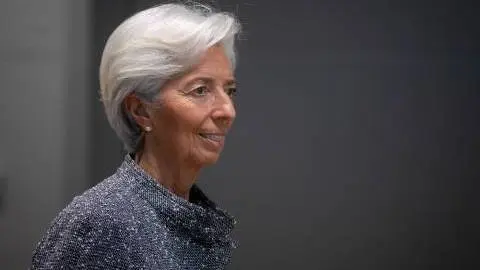EUR & ECB: Mixed impressions but no risk premia build up
The newly announced and signalled ECB measures should help contain the EUR risk premium, with the missteps of the ECB March meeting not repeated. We don’t expect EZ fiscal issues to be the main EUR driver in 2020. As broader USD weakness kicks in over coming months, the euro, unconstrained by EZ risk premia, should be able to move to EUR/USD 1.15 this summer
Sufficient measures but less conviction
In our ECB & EUR Preview, we focused on two aspects of today’s ECB meeting when it comes to the EUR/USD price action: (1) The potential top-up of the Pandemic Emergency Purchase Programme (PEEP); and (2) President Lagarde's communication. Although the former was stronger and more convincing than the latter, the EUR/USD should still be heading higher into the summer months :
Measures announced or signalled
President Lagarde hinted that the PEPP programme will be extended (as we and the market expected). Moreover, to ease the strains on the economy (as well as the banking sector) the ECB introduced a new series of non-targeted pandemic emergency longer-term refinancing operations (PELTROs) and changed conditions to TLTRO III – both being generous in availability and cost (see ECB Review more for more details). At face value, the ECB measures successfully contain any build-up of fiscal risk premium into the euro
Press conference
While President Lagarde avoided the missteps of the March ECB meeting (which led to the sell-off in BTPs and, based on our estimates, translated into around 2% risk premium built up into the euro), at times the very repetitive press conference appeared to be missing the degree of conviction and the “whatever it takes” attitude markets might have hoped for.
Risk premium unconstrained euro heading to EUR/USD 1.15 this summer
Looking beyond the short-term price action, we retain the view that the euro risk premium and the risk of a bloc’s fiscal crisis should not be a theme and driver of the common currency this year (the latest ECB measures increased our conviction). This should allow EUR/USD to appreciate in the coming months and reach 1.15 in the summer once the anticipated USD weakness kicks in. As we highlighted in The FX road to recovery, USD screens as the least attractive G10 currency to position for the post Covid-19 recovery in global growth and easing of the lockdown measures. Coupled with the lost interest rate advantage and the large Fed's balance sheet, the dollar decline should facilitate higher EUR/USD.
This publication has been prepared by ING solely for information purposes irrespective of a particular user's means, financial situation or investment objectives. The information does not constitute investment recommendation, and nor is it investment, legal or tax advice or an offer or solicitation to purchase or sell any financial instrument. Read more
Download
Download article
30 April 2020
ING’s Covid-19 roundup: Lagarde and Powell’s whatever-it-takes moment This bundle contains 11 Articles